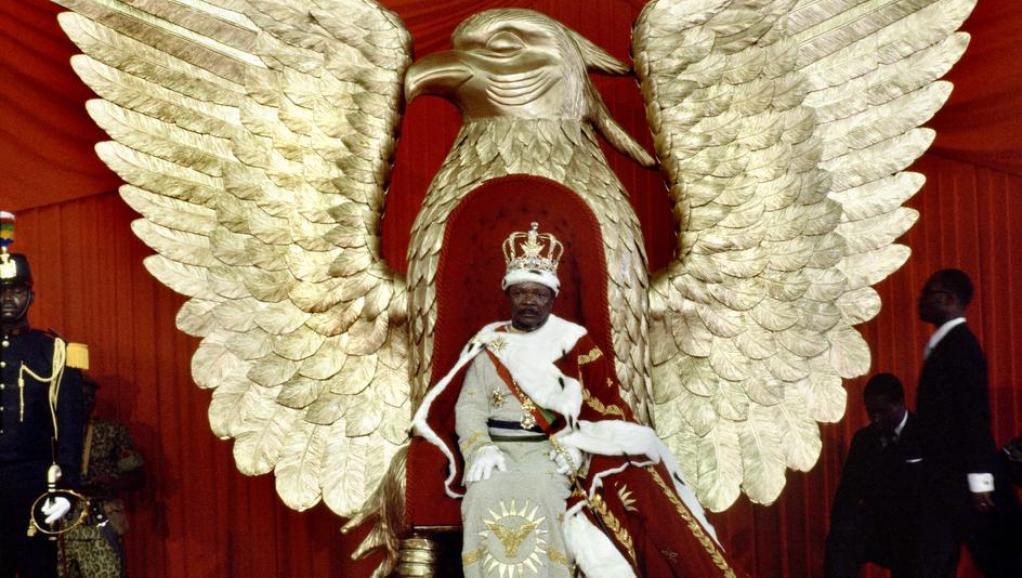
Dacko and Bokassa in the Central African Republic (1960- 1981)
In the early 19th century, the area around the Central African Republic was losing about 20,000 per year because of demand for slaves in Egypt and Brazil. For a while the area became underpopulated and when the French took over the area as a colony they were faced with many obstacles including famines and various epidemics.

In 1949, Barthelemy Boganda established the Movement for the Social Evolution of Black Africa (MESAN) but died in a plane crash in 1959. Thereafter, David Dacko took over the party and ousted the progressive members. He would become President in 1960 and created a one party state which led to the banning of Abel Goumba’s Movement for the Evolution of Central Africa (MEDAC). The government of David Dacko was supported by the French government until 1965 when he gave up his power to Jean Izamo who was head of the police at the time. Before he could fully take over, Colonel Jean Bedel Bokassa staged a coup which led to the killing of Izamo.
Bokassa quickly became a despot, imprisoned opponents, and looted the country to personally enrich himself and those close to him. In 1972, he declared himself President for life and later Emperor. The coronation of Bokassa was funded by the diamond companies and the French. After 1978, citizens began protesting his rule. One of the protests included school children who were being forced to buy and wear uniforms manufactured by a company owned by Bokassa and his wife. Between 50 and 400 students were arrested, 100 of them were beaten to death. This became an international scandal that eventually forced him out. The French stopped supporting him and flew in 1,000 troops to reinstate David Dacko.
Unfortunately, the French troops stayed in the Central African Republic for 18 years instead of the 10 years he had promised. Six of Bokassa’s closest allies were tried by the new government and executed. In 1981, a new Constitution was established which created a multi-party democracy and elections were held. However, the opposition protested that Dacko won with 50.23% of the vote. The opposition riots led to the resignation of David Dacko. He was succeeded by Andre Kolingba who suspended the constitution and outlawed multiparty democracy.




1 Comment
by Nidhi
18 years of occupations is a disgrace to liberty loving Africans who believe in self rule.
Comments are closed.